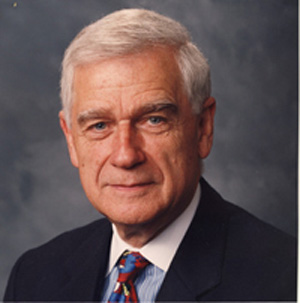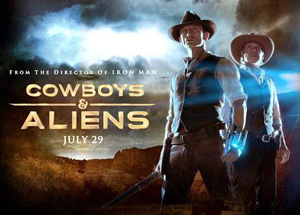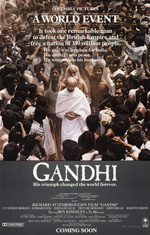relationship
Rev. Steve Stone was just trying to be a good neighbor.
Two years ago, the pastor of Heartsong Church in Cordova, Tennessee, on the outskirts of Memphis, learned that a local mosque had bought property right across the street from the church. So he decided some Southern hospitality was in order.
A few days later, a sign appeared in front of the church. "Heartsong Church welcomes Memphis Islamic Center to the neighborhood," it read.
That small act of kindness was the start of an unlikely friendship between the two congregations, one that made headlines around the world. Members of the mosque and church have shared meals together, worked at a homeless shelter, and become friends over the past two years. When Stone learned that his Muslim friends needed a place to pray for Ramadan because their building wasn't ready, he opened up the doors of the church and let them hold Ramadan prayers there.
On Monday the Dow Jones industrial average fell 634.76 points; the sixth-worst point decline for the Dow in the last 112 years and the worst drop since December 2008. Every stock in the Standard and Poor's 500 index declined.
It is easy to blame bipartisan bickering for the impasse that led to Standard and Poor's downgrading of the American debt, and in turn the vertiginous fall of the Dow. This bickering -- this substitution of ideology for reason, of egotism for compassion and responsibility on the part of lawmakers -- is a national disgrace; but while it failed to fix the problem, we must realize that it did not cause it. The cause -- and potential for a significant renewal -- lies much deeper.
So let's allow ourselves to ask a fundamental question: what's an economy for?
 Mark O. Hatfield's political witness shaped a whole generation of students, teachers, pastors, and social activists in the evangelical community and beyond. The voice of Christians today who plead for social justice and peaceful alternatives to war would not have emerged with its strength and clarity in the 1970s without his leadership. His death underscores the vacuum of such spiritually rooted voices uncompromising in their commitments to peace and justice within the cacophony political rhetoric today.
Mark O. Hatfield's political witness shaped a whole generation of students, teachers, pastors, and social activists in the evangelical community and beyond. The voice of Christians today who plead for social justice and peaceful alternatives to war would not have emerged with its strength and clarity in the 1970s without his leadership. His death underscores the vacuum of such spiritually rooted voices uncompromising in their commitments to peace and justice within the cacophony political rhetoric today.
One of my life's greatest privileges and joys was to work as an assistant to Senator Mark O. Hatfield for nearly a decade, from 1968 to 1977. I saw first-hand what courageous leadership, combined with unswerving compassion and civility, looked like within the political life of that turbulent and formative era. Those experiences are shared in my book, Unexpected Destinations (Eerdmans).
 Americans have a hard time knowing how to respond to the sins of our colonial past. Except for a few extremists, most people know on a gut level that the extermination of the Native Americans was a bad thing. Not that most would ever verbalize it, or offer reparations, or ask for forgiveness, or admit to current neocolonial actions, or give up stereotyped assumptions -- they just know it was wrong and don't know how to respond. The Western American way doesn't allow the past to be mourned or apologies to be made. Instead we make alien invasion movies.
Americans have a hard time knowing how to respond to the sins of our colonial past. Except for a few extremists, most people know on a gut level that the extermination of the Native Americans was a bad thing. Not that most would ever verbalize it, or offer reparations, or ask for forgiveness, or admit to current neocolonial actions, or give up stereotyped assumptions -- they just know it was wrong and don't know how to respond. The Western American way doesn't allow the past to be mourned or apologies to be made. Instead we make alien invasion movies.
Shakespeare said a rose by any other name would smell as sweet. Maybe, but a Stink Rose by any other name (say... garlic?) might get more play.
On July 19, Campus Crusade for Christ announced its plan to officially change its name to Cru in early 2012.
Brown v. Board of Education had not yet been fought in the Supreme Court when Bill and Vonetta Bright christened their evangelical campus-based ministry Campus Crusade for Christ in 1951. The evangelical church context was overwhelmingly white, middle class, and suburban. The nation and the church had not yet been pressed to look its racist past and present in the face. The world had not yet been rocked by the international fall of colonialism, the rise of the Civil Rights movement, the disillusionment of the Vietnam War, the burnt bras of the women's liberation movement, the fall of the Berlin Wall, or the rise of the Black middle class (more African Americans now live in the suburbs than in inner cities). In short, theirs was not the world we live in today. So, the name Campus Crusade for Christ smelled sweet. Over the past 20 years, though, it has become a Stink Rose ... warding off many who might otherwise have come near.

So as I watched the final Hogwarts Express depart from Platform 9¾ in Harry Potter and the Deathly Hallows, Part II this past weekend (slightly teary-eyed, I confess), I started to wonder: What might it sound like to pray in the language of Harry Potter -- language that clearly resonates with folks around the world? Would it be cheesy? Probably. Profane? Perhaps. But I figured the God who relied on earthly parables about wineskins and fig trees to explain the Kingdom would understand.
The other day I read some interesting statistics about how social media is shaping our lives . It is interesting to see the response to this and recognize the different ways in which we grapple with deluge of social media in relation to our faith. There are lots of resources emerging to help us maintain a strong and vibrant faith in the midst of this. I wanted to highlight a couple that I have found very useful
I was not one of the 1,500 who attended the inaugural Wild Goose Festival in Shakori Hills, North Carolina last month, but I did grow up going to Christian summer camp. What’s the connection, you ask, between a festival and summer camp? Summer camp -- like festivals and extended retreats -- is often deeply formative because it gives kids (and adult counselors, for that matter) a glimpse at a kingdom lifestyle.
 Ah the joy of watching movies in the summer! Of course, there are a number of summer blockbusters coming out that will woo crowds to the theaters, but with the sky-high prices of theater tickets these days, nobody will fault you for wanting to stay home and kick back with a rental. If you're looking for a film that will entertain and inspire you, consider adding some of these excellent films about social change to your online queue. If you have any other films to add to this list, please contribute your favorites in the comments section below. (To read more of my film reviews, check out my monthly column in Sojourners magazine.)
Ah the joy of watching movies in the summer! Of course, there are a number of summer blockbusters coming out that will woo crowds to the theaters, but with the sky-high prices of theater tickets these days, nobody will fault you for wanting to stay home and kick back with a rental. If you're looking for a film that will entertain and inspire you, consider adding some of these excellent films about social change to your online queue. If you have any other films to add to this list, please contribute your favorites in the comments section below. (To read more of my film reviews, check out my monthly column in Sojourners magazine.)
When evangelical politicians pronounce on topics like the origins of the universe, the results are almost always awful -- embarrassing, infuriating, unwatchable. When a reclusive, visionary filmmaker like Terrence Malick treats the same subject matter, as he does in his new movie The Tree of Life, one is transported. Which is a useful reminder that the mysteries of creation are best grappled with through art. The book of Genesis, after all, begins not with scientific description or theological argument, but with a poem.
The Public Religion Research Institute recently released the results of their newest survey, "Committed to Availability, Conflicted About Morality," which shined new light on the complexity of opinions on abortion between different religious groups and age demographics. The study results were presented two weeks ago at the Brookings Institution in Washington, D.C.
The most intriguing age group in the study are Millenials, ages 18 to 29. In the introduction to the survey results, the authors claim that given Millenials' self-described characteristics of being "confident, self-expressive, liberal, upbeat, and open to change," they have a "peculiar profile" when it comes to their views on abortion. And this is especially "peculiar" when viewed alongside their strong support for gender equality and rights for gay and lesbian people. Millenials' complex, label-defying views of abortion make them "conflicted about morality," the report states. But are Millenials really, actually conflicted about morality?
Yesterday was Father's Day. As a favor to a dear friend, I did a speaking event on Saturday night away from home, and planned on returning very early in the morning for Sunday and Father's Day.
When trying to make sense of the changes that new media have brought to us, we can use either supplementary or substitutionary logic. With supplementary logic, Facebook et al. extend the range of our embodied relationships; with substitutionary logic, social media replace them. Those who want to use social media to enhance their churches' outreach implicitly use supplementary logic. Those who want to worship online and don't want to change out of their pajamas or meet other people in their messy particularity ... well, you get the idea.
A recent trip to New York City for a first meeting of the New Media Project Research Fellows reminded me of the superiority of supplementary to substitutionary logic. This happened because the neighborhood around Union Theological Seminary is so deliciously, specifically, embodiedly particular. Union itself is a marvel: its gothic architecture makes it unmistakable that this is a place with history. Niebuhr taught here; Bonhoeffer smoked and worried and decided to go home here; James Cone and Christopher Morse teach here; Serene Jones leads here. The neighborhood extends this particularity; the Jewish Theological Seminary, down Seminary Row, has a glorious crest above its door: "And the bush was not consumed." A tunnel under Union leads you to the grandeur of Riverside Church, where Fosdick and Forbes thundered. Go a few blocks south and east, and you're at The Cathedral of St. John the Divine, the largest interior church space in North America. The morning I visited, the light shone blue through the rose window, filling the clerestory with incandescent beauty. The chapel at Columbia University, with its stained glass above the altar depicting St. Paul preaching on Mars Hill, is a perfect image for situated Christian truth vis-à-vis the gods on campuses and in Manhattan.
Just a couple of weeks ago I wrote the following in response to news about Arnold
